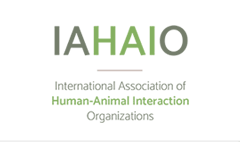Abstract
Influences from human-horse interactions form the basis of the emerging field of equine-assisted psychotherapy (EAP). However, the psychophysiological effects of horses on humans in the EAP context have been underinvestigated. This multiple single case design study examined the effects of short-term human-horse interactions on human heart rate variability (HRV). Nine adults with limited prior experience with horses participated in time-limited in vivo exposures to five different free-roaming horses in a yard. Results were mixed with HRV improving from a preexposure baseline in 40% and deteriorating in 23% of the 43 ten-minute horse-human interactions. In the remaining horse-human interactions, HRV was unchanged from baseline. Aggregated results showed an overall improvement in HRV across experimental phases despite considerable intrasubject and intersubject variability. These preliminary results suggest that interaction with the horses, as well as having a neutral effect, may have had either a stress-moderating effect or a stress-arousal effect on participants. This study validates findings from other studies that show a stress-moderating effect of animals in the therapeutic context and also supports findings showing human stress arousal when near horses. Findings indicate that stress arousal is an important variable that requires consideration in the EAP context. This study provides an early insight into the influences of human-horse interactions on the human autonomic nervous system, providing a foundation for further studies.
Recommended Citation
Ecker, Saan and Lykins, Amy
(2019)
"Effects of Short-Term Human-Horse Interactions on Human Heart Rate Variability: A Multiple Single Case Study,"
People and Animals: The International Journal of Research and Practice: Vol. 2
:
Iss.
1,
Article 2.
Available at:
https://docs.lib.purdue.edu/paij/vol2/iss1/2


